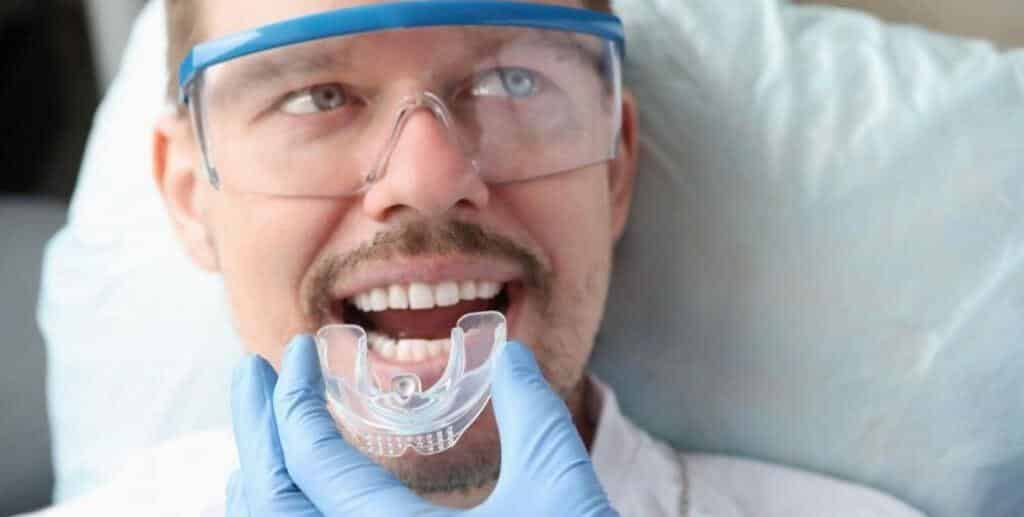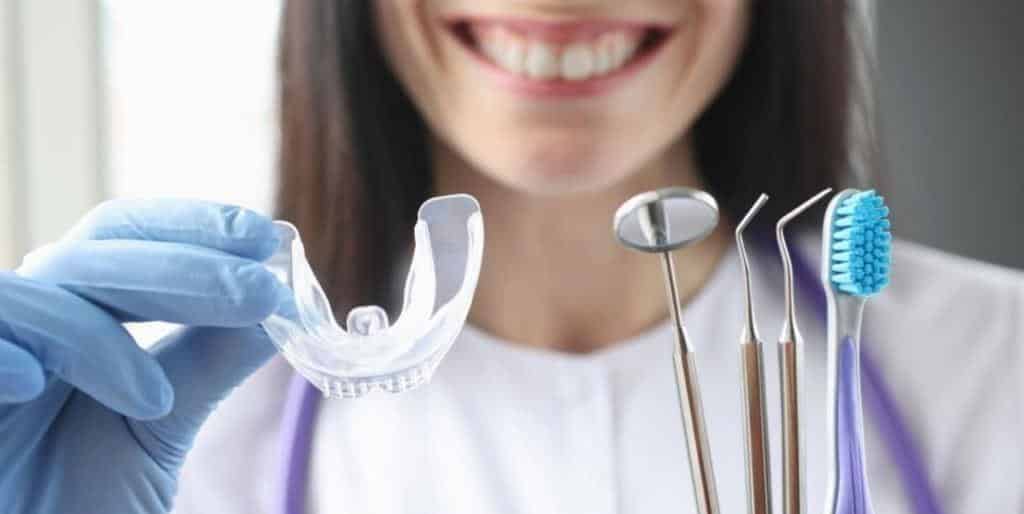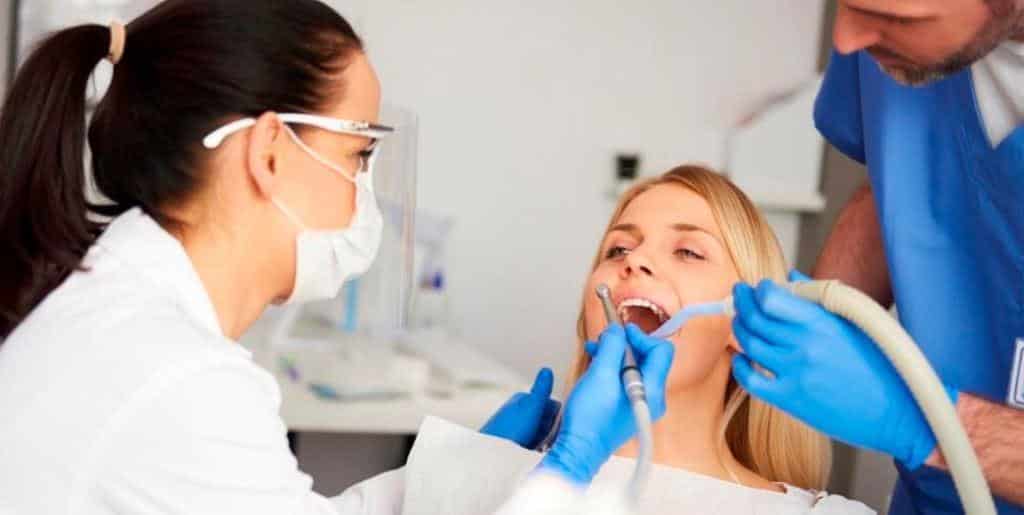Although bruxism is not a newly discovered ailment, its causes are still not fully understood. The causes of teeth grinding are attributed to malocclusion, prolonged stress and many other factors. What are the consequences of bruxism? And how to get rid of it? Let's find out!
Bruxism - what does it actually consist of?
Bruxism is an ailment that involves over-activity of the masseter muscles, which manifests itself through unconscious clenching and grinding of the teeth. Importantly, if you notice such symptoms in yourself or a loved one, a visit to the dentist is a must. Bruxism can have many unpleasant consequences and you should act quickly.
There are two types of bruxism: daytime, associated with clenching the jaw, and nighttime, associated with grinding. Both types should not be underestimated - a visit to a specialist is a must!

Consequences of grinding and clenching of teeth
It would seem that untreated bruxism will result in 'just' grinding or cracking of the teeth. However, the consequences may be even more serious. Teeth grinding may even lead to periodontal atrophy, wedge-shaped cavities (enamel defects), lowering of the gums and even loosening or displacement of the teeth.
Teeth that are exposed to clenching and excessive abrasion are more prone to decay and sensitivity. It is not uncommon to experience bleeding during tooth brushing.
However, it is not only at the jaw level that problems can arise. Bruxism also leads to problems with the organ of vision. What does it mean? Patients with untreated teeth grinding experience pain in the orbital region, a feeling of dry eye or even periodic blurred vision.
This is not the end of unpleasant consequences. Bruxism can cause imbalance, pain and tinnitus. Headaches and even migraines, insomnia and contractures are other ailments that can occur as a result of untreated teeth grinding.

Treatment of bruxism
To treat bruxism, a visit to the dentist is necessary. The dentist may recommend wearing a relaxation sleep splint. How does it work? It takes the form of a flexible cap, so it adapts to the jaw. It is worn at night, on the upper or lower dental arch. This is a good method, but unfortunately it does not solve the problem.
It is not uncommon when treating bruxism to require is the help of a psychiatrist, psychotherapist or neurologist. If stress is the cause of teeth grinding, only psychotherapy or appropriate medication will be able to effectively help in the fight against bruxism.
This ailment can also be treated by a physiotherapist. The relevant specialist will examine the cause carefully. He or she will try to relax the muscles appropriately using various techniques. This is a very complex process that may take some time, but it is certainly worth it.
Botox is also a good way - Depending on the severity of the problem, several to a dozen applications will be needed. The substance will weaken the masseter muscles so that they no longer tighten so much.
Sometimes the cause of bruxism is simply an incorrect bite. Correcting it may require the fitting of braces. Find out more about untreated malocclusion: "Crooked teeth - causes and how to get rid of an embarrassing smile" and orthodontic appliances: How do braces work?

Costs of treatment at our practice
We realise that the cost of malocclusion or orthodontic treatment can be quite a burden for many families. That's why our practice offers convenient, interest-free instalments for the first year. With our system it can cost as little as £50 per month to fit braces for one arch.
Read more about our instalment system: "Teeth on credit: dental treatment on hire purchase". Do you have any questions? Feel free to contact!
Important: our instalment system is regulated by the Financial Conduct Authority. This means that it is completely safe!

